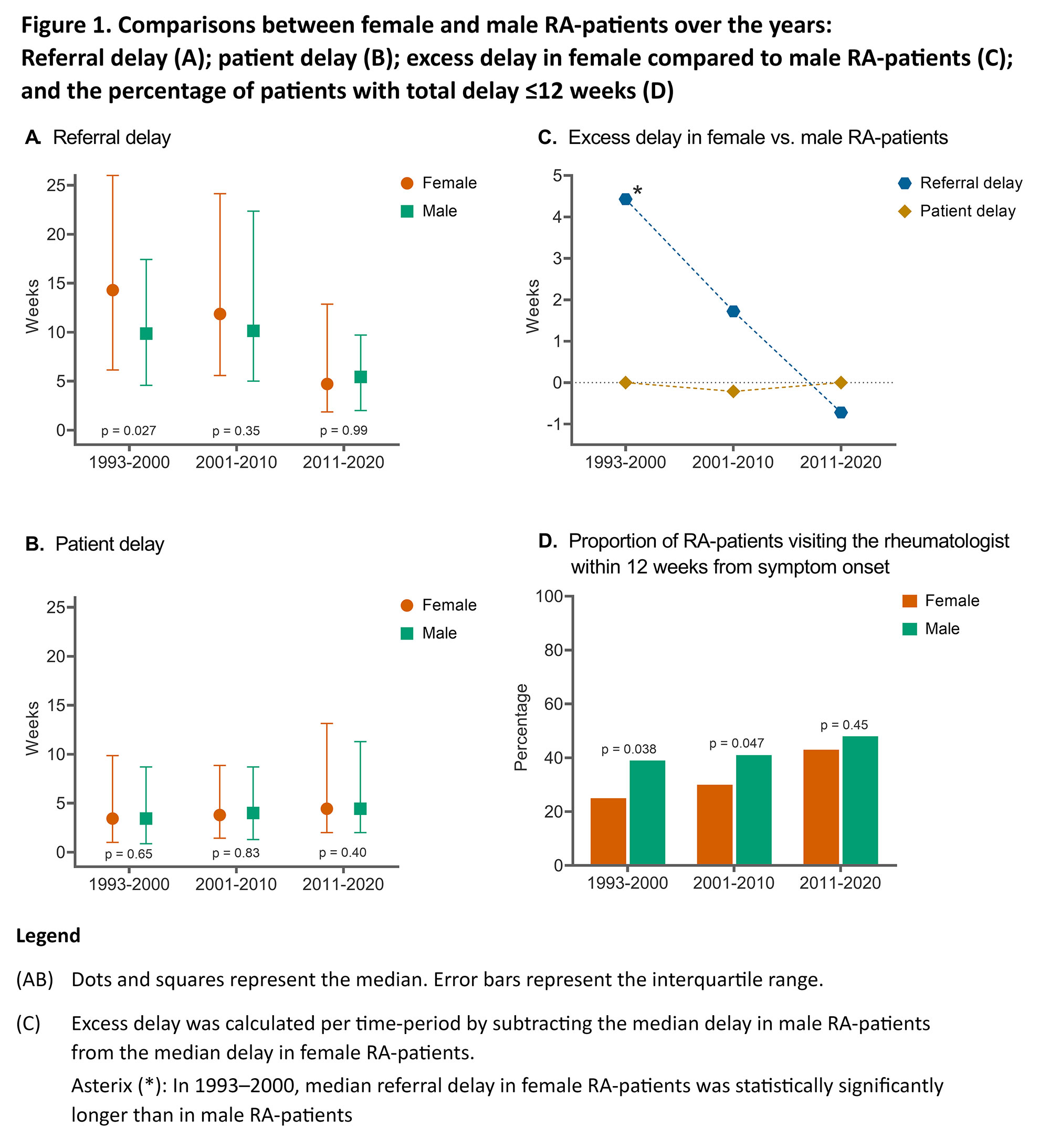Session Information
Session Type: Poster Session A
Session Time: 1:00PM-3:00PM
Background/Purpose: Delayed referral of female RA-patients was reported twenty years ago: the time between the first appointment with the general practitioner (GP) and referral to the rheumatologist (‘referral delay’) was significantly longer in female than male RA-patients. In contrast, the time between symptom-onset and the first appointment with the GP (‘patient delay’) was similar in both sexes. Although rapid referral has been increasingly advocated and incorporated in guidelines during the past two decades, recent sex-specific data are lacking. Therefore, we assessed excess referral delay in female RA-patients over the past three decades in a unique regionwide inception cohort with 27 years of data.
Methods: 962 consecutive early RA-patients (630 women and 332 men) presenting at the Leiden Early Arthritis Clinic during three time-periods were studied: (1) 1993-2000;the reference period with known referral delay in females, (2) 2001-2010; with increased education of GPs on the importance of early referral, and (3) 2011-2020; with the addition of an easy-access screening clinic enabling very swift referral for patients in whom the GP doubts on the presence of arthritis. All education and instructions for GPs were not sex-specific. For each time-period we assessed referral, patient and total delay from symptom-onset to the first visit with the rheumatologist.
Results: Referral and patient delay are depicted in Figure 1A-C. Between 1993-2000, median referral delay was 4.4 weeks longer in female than male RA-patients (median (IQR) of 14.3 (6.1-26.0) vs. 9.9 (4.6-17.4) weeks; p=0.027). Thereafter, excess referral delay in female RA-patients decreased to a statistically insignificant difference of 1.7 weeks in 2001-2010. Finally, in 2011-2020, referral delay was similar in women and men (4.7 (1.9-12.9) and 5.4 (2.0-9.7); p=0.99). Patient-delay was stable and similar in both sexes. The percentage of RA-patients with total delay ≤12 weeks showed a similar time-pattern as referral delay (Figure 1D).
Conclusion: In the era of implementation of guidelines on early referral, excess referral delay in female RA-patients has improved.
To cite this abstract in AMA style:
van Dijk B, van der Helm-van Mil A. Delayed Referral of Female Rheumatoid Arthritis Patients: Where Are We Now? A Study Spanning Three Decades [abstract]. Arthritis Rheumatol. 2022; 74 (suppl 9). https://acrabstracts.org/abstract/delayed-referral-of-female-rheumatoid-arthritis-patients-where-are-we-now-a-study-spanning-three-decades/. Accessed .« Back to ACR Convergence 2022
ACR Meeting Abstracts - https://acrabstracts.org/abstract/delayed-referral-of-female-rheumatoid-arthritis-patients-where-are-we-now-a-study-spanning-three-decades/

